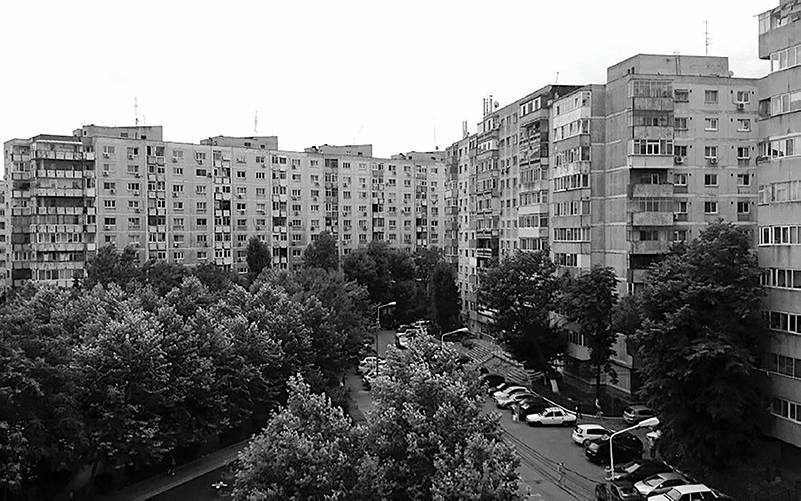 Overview
Overview

In the 1950’s a new model of housing prefabrication was initiated. This, alongside the consequent domestic standardisation within socialist states, resulted in the reconfiguration of Romanian cities and a reinvention of domesticity in an attempt to constitute the New Socialist Person. The role of women was especially emphasised in relation to the reproduction of the labour force, whilst the construction of a new domestic space served as an instrument for the state to control all aspects of life.
This two-year project, funded by the European Commission Marie Curie Fellowship, investigates the relationship between gender, the (post)communist state and architecture, in the passage from socialism to its aftermath in Eastern Europe.
The fall of the communist regime in 1989 and the emergence of a capitalist democracy in Eastern European countries served both to contest and reshape former boundaries between the private and public realms. Alongside this, housing infrastructure represented the main inheritance of the communist system and constituted the physical structure that was needed to accommodate a new type of domesticity. Recent scholarship has addressed the role of women within both communist and post-communist contexts in Romania. There remains, however, a significant question that has yet to be addressed regarding the relationship between built space and gendered subjects. This project investigates the relationship between processes of regulating, designing, building, using and imagining socialist housing and the actual lived experiences of women.
The approach of this research project is interdisciplinary, employing qualitative methods, and drawing on specific theoretical frameworks from architecture, anthropology and gender studies for analysis and interpretation. The main objective of this research is to establish the significance of housing infrastructures built between 19551984 in Bucharest, in the regulation of the home, the family and women’s roles in the communist and post-communist periods.
People
Image: Socialist Housing in Bucharest. Credit: Iulia Statica, 2014.
urbanisation environment sustainability Close
Close

